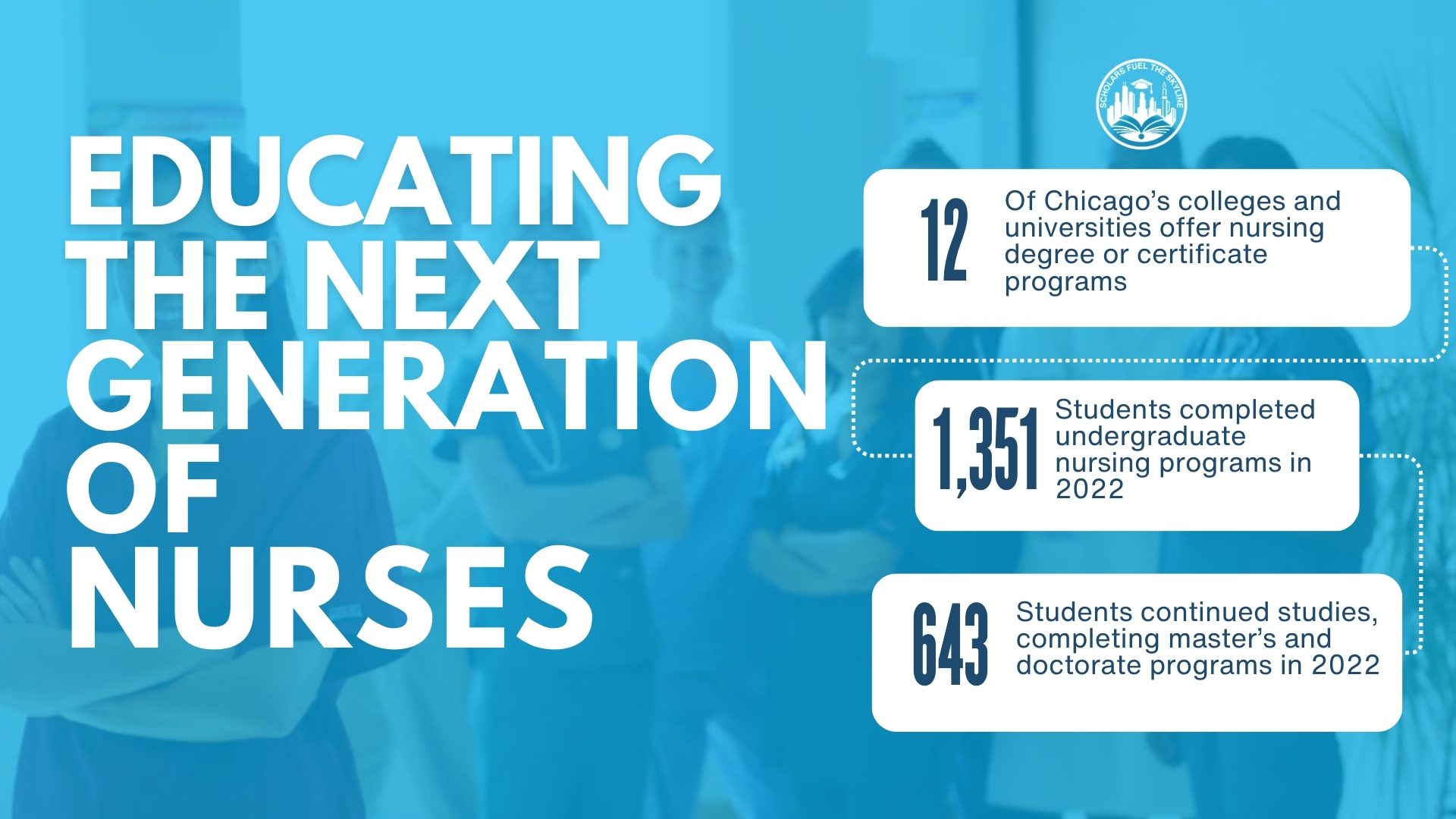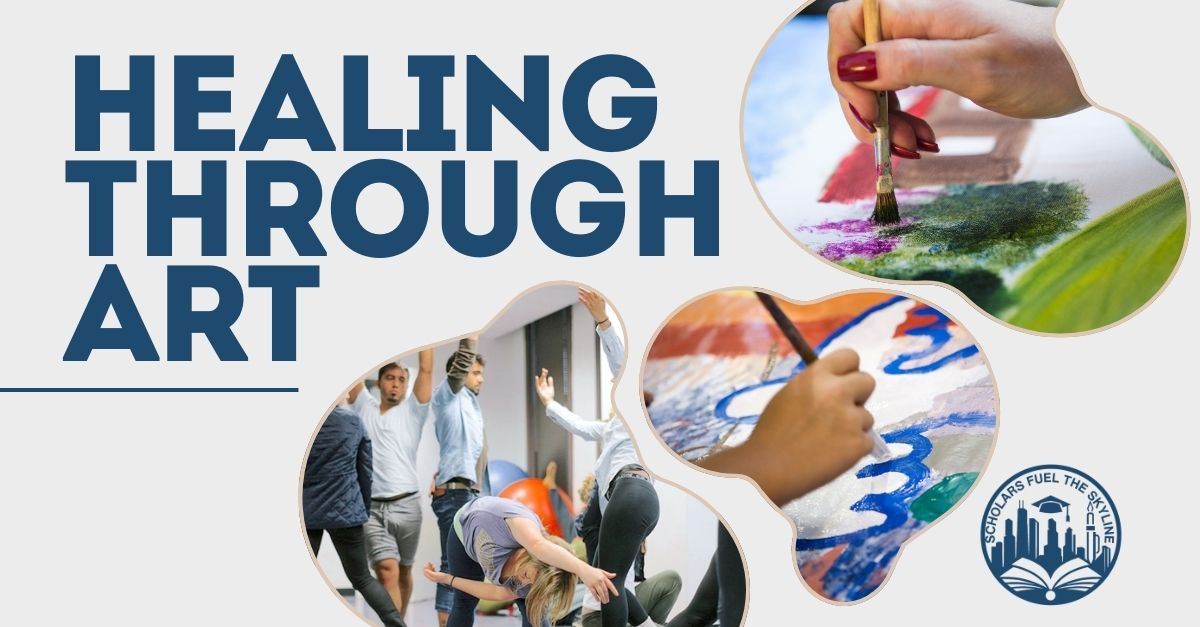Chicago’s colleges and universities are constantly evolving, introducing new advancements, programs, and areas of study that benefit both students and city residents. These institutions are committed to staying at the forefront of knowledge and innovation while engaging communities to create a healthier Chicago for everyone.
Nursing

A February 2024 article in Crain’s Chicago Business quotes an estimated shortage of 15,000 registered nurses by 2025.
America’s Urban Campus (AUC) is diligently working to be part of the solution. Half of the member institutions have nursing degree programs at various accessibility levels, from certificate programs to doctorate degrees. In some instances, those without nursing programs have pre-nursing coursework and advising that prepares students for programs within the city.
Moreover, Chicago’s colleges and universities are making significant strides in increasing access to nursing education citywide, a crucial response to the impending nurse shortage. For instance, DePaul University successfully relaunched its Bachelor of Nursing Program in the fall of 2022. National Louis University also stepped up by launching a new nursing school in the 2023-2024 academic year. City Colleges and the University of Chicago announced a partnership to construct a new nursing school and lab in Washington Park. RUSH University, not to be outdone, introduced scholarships for nurse practitioner students interested in primary care and anesthetists. These initiatives are not just promising, but they are also actively addressing the nurse shortage, instilling hope in the future of health care in Chicago.
Chicago’s institutions are not just addressing the nurse shortage, but also leading the way in fostering a diverse nursing workforce. For example, Loyola’s Arrupe College is dedicated to supporting first-generation students with a two-year program that ensures affordability while providing comprehensive care for the whole person—intellectually, morally, and spiritually. RUSH University actively works to increase male participation with initiatives like Men in Nursing, demonstrating their commitment to inclusivity and diversity. These programs are breaking barriers and improving health care, making every individual feel valued and considered in the health care sector.
Art Therapy

Chicago’s colleges and universities are focused on traditional health services and exploring innovative approaches to mental wellness. Art therapy programs at Adler University and Columbia College Chicago are gaining recognition for their unique contributions to the field. These programs utilize creative methods to help individuals explore their emotions, improve self-expression, and develop coping mechanisms. Art therapy is particularly beneficial for those who may struggle with traditional talk therapy, providing a non-threatening outlet for processing trauma, stress, and other mental health challenges. Integrating art and therapy highlights the diverse ways Chicago’s academic institutions address mental wellness and foster a more holistic approach to health and well-being in the City.
Public Health
Illinois Institute of Technology, Northwestern University, and the University of Chicago are proud to be among the fourteen institutions participating in the National Institutes of Health’s (NIH) groundbreaking Nutrition for Precision Health study. This innovative research initiative uses cutting-edge AI technology and diverse data to analyze how our bodies respond to different foods. With poor diet being a leading cause of preventable disease and death worldwide, this study aims to enroll 10,000 participants from various backgrounds to understand the individual responses to food better. The ultimate goal is to revolutionize personalized nutrition, paving the way for healthier outcomes and improved well-being. This collaboration exemplifies the commitment of Chicago’s higher education institutions to advance research and address critical health challenges facing our society.
